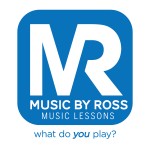At first glance, one might consider the mandolin to be similar to the guitar or ukulele, but the approach to mastering this instrument is entirely different. Many people enjoy the ethnic sounds that a mandolin can produce and recognize how it perfectly complements many Western, Asian and Middle-Eastern genres of music. The modern mandolin originated in Italy during the seventeenth and eighteenth centuries and became common across Europe in the nineteenth century. Today, mandolin is popular all over the world, particularly in the Americas, in country, bluegrass, old-time and folk music.
Here are some advantages to taking private in-home mandolin lessons:
- Fully customized lessons – no “one size fits all” lessons
- No traffic and no scheduling hassles – take lessons in your best learning environment
- Learn to play mandolin from a certified, local mandolin instructor
Sign up for mandolin lessons with one of our most knowledgeable mandolin instructors, and develop your talent with one of the most diverse and unique sounding instruments of the past and present!
Why take lessons?
When you first start learning how to play an instrument, holding a note for a couple of beats or hitting a high pitch feels like an amazing achievement. As you practice and become a more experienced musician, making music enjoyable, not only to your ear but to others’ as well, is a very rewarding experience. Taking music lessons from an experienced instructor who knows how to assess individual skill levels and tailor your lessons to your particular ambitions will help you meet your goals much faster.
Here are some other ways you can benefit from learning an instrument:
- Studies show that learning an instrument increases self-confidence, memory, and has proven to relieve stress.
- Music lessons have been found to improve how the brain processes the spoken word. This finding could lead to improving the reading ability of children who have dyslexia and other reading problems.
- A study by E. Glenn Schellenberg at the University of Toronto at Mississauga, as published in a 2004 issue of Psychological Science, found an increase in the IQs of six-year olds who were given weekly piano and voice lessons.
- Studies have shown that students who play instruments are often better in math and achieve higher grades in school than students who don’t. Source: Friedman, B. (1959) An evaluation of the achievement in reading and arithmetic of pupils in elementary schools instrumental classes. Dissertation Abstracts International, 20, pp.s 3662-3663.




